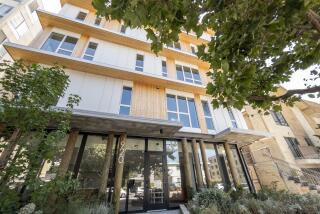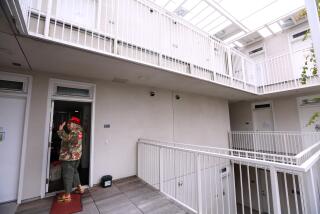Unincorporated Areas Get Business Tax
SAN DIEGO — Acting on fears that a state proposition could make it difficult to raise local taxes after Nov. 6, the San Diego County Board of Supervisors voted Tuesday to enact a first-ever license tax for businesses in unincorporated areas.
The new tax will cost each business, regardless of size, a flat rate of $100, plus $5 per full-time employee and $2.50 per part-time employee. However, Supervisor Brian Bilbray said the fee is certain to be reduced before the end of the year. In any case, business owners will not begin to pay the tax until March.
There was widespread opposition from the business community to the new tax. Most opponents complained that money raised in their communities will be spent elsewhere.
“The money raised in Spring Valley should be spent in Spring Valley, for the betterment of the community,” said Don Reed, president of the Spring Valley Chamber of Commerce.
Bilbray urged board members to adopt the tax as an interim measure before Proposition 136 is considered by the voters next month. If passed, the initiative will amend the state constitution and require a two-thirds approval by voters of all local tax proposals.
County officials pointed out that, if a license tax were to go before local voters, it would require the approval of all county voters, not just those living in the unincorporated areas.
According to county estimates, the fees adopted by the board will generate $1.6 million to $1.8 million in annual revenue. However, the actual amount that the tax will raise is uncertain, because board members did not debate the size of the expected reduction.
Money raised by the tax is earmarked specifically for sheriff’s law enforcement services in the unincorporated areas of Julian, Pine Valley and Valley Center. The budget adopted by the board earlier this month contained $871,329 in funds anticipated from the business tax for these law enforcement activities.
Supervisors George Bailey and John MacDonald, whose districts encompass much of the county’s unincorporated area, exacted a promise from Bilbray and Chairman Leon Williams that the tax will be reduced.
Bailey and MacDonald favored a proposal that called for a $25 flat rate plus $10 per full-time employee and $5 for each part-time employee. The two men also succeeded in persuading the other supervisors to support language to force the county to spend any surplus funds remaining from the tax in services for unincorporated areas. Supervisor Susan Golding was absent Tuesday.
Although they opposed the idea of any new taxes, most business owners favored the formula adopted by the board. They found more distasteful an earlier proposal to adopt a flat rate that included a percentage of the business’ gross receipts.
Several opponents charged that the board was enacting the tax to make up for millions of dollars it lost in state funds this year. This charge was rejected by board members, who pointed out that most cities charge a license tax and that not paying the fee was the exception rather than the rule.
But, no matter how much board members attempted to persuade them, most business owners were not sold on the tax.
“Every time we make a little money, along comes some other government tax to take it away. There are many of us that simply cannot afford it any more,” wrote Mary L. Halliday, a small business owner in Ramona, in a letter to board members.
More to Read
Sign up for Essential California
The most important California stories and recommendations in your inbox every morning.
You may occasionally receive promotional content from the Los Angeles Times.










